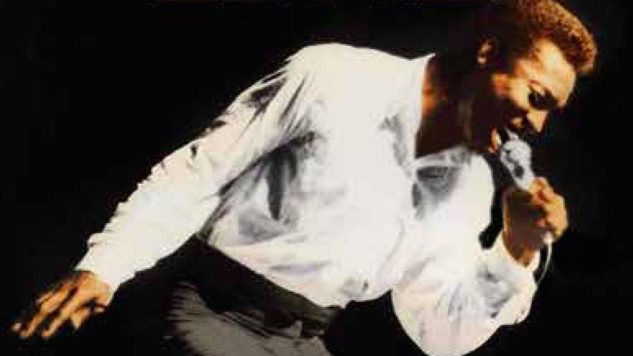Music Icon Wilson Pickett Garners His First Biography with Tony Fletcher’s In the Midnight Hour
Books Reviews Wilson Pickett
One of the most startling revelations from In the Midnight Hour: The Life & Soul of Wilson Pickett is that a critical biography has never been written about this soul/R&B icon before now. It’s a huge oversight, considering the volumes published about his contemporaries and the colorful life that he led.
Pickett brought the shouts of the Pentecostal church into the realm of secular music, thanks to years honing his craft in gospel groups. It helped his voice stand out from the smooth croons of artists like Sam Cooke, Ben E. King, and Smokey Robinson. That and Pickett’s knack for songwriting earned him a string of hit singles like “In The Midnight Hour” and “Funky Broadway.”
As these stories tend to go, Pickett was upended along the way by his personal demons. His anger (fueled in part by heavy drinking) was often directed toward the closest people in his life, resulting in terrifying stories of child abuse and assaults on his various romantic partners. It also cost Pickett personal relationships with friends, business partners, and labels. So with the right combination of research and interviews, his life story proves for a tumultuous read.
 Tony Fletcher almost nails the equation with In the Midnight Hour. A veteran journalist and author of biographies on Keith Moon and R.E.M., Fletcher took multiple trips to Pickett’s old stomping grounds in Alabama and Detroit and conducted dozens of interviews with family members, his backing bandmates, and fellow musicians. Fletcher lays bare Pickett’s highs and most egregious lows without flinching, but there’s an almost scholarly detachment to moments like Pickett firing a gun at his own brother or meting out punishment on his son with a baseball bat.
Tony Fletcher almost nails the equation with In the Midnight Hour. A veteran journalist and author of biographies on Keith Moon and R.E.M., Fletcher took multiple trips to Pickett’s old stomping grounds in Alabama and Detroit and conducted dozens of interviews with family members, his backing bandmates, and fellow musicians. Fletcher lays bare Pickett’s highs and most egregious lows without flinching, but there’s an almost scholarly detachment to moments like Pickett firing a gun at his own brother or meting out punishment on his son with a baseball bat.
These acts aren’t condoned or forgiven, just spelled out. Fletcher leaves the editorializing to folks like Marc Ribot, the guitar player in Pickett’s backing band who watched the musician dole out physical and verbal abuse on a regular basis. “You know why guys beat women?” Ribot asks. “Because they fucking can. And it’s abuse. I’ve worked with bandleaders who are respectful, courteous, and generous human beings—and then I’ve worked with Wilson Pickett.”
Fletcher reserves his critical commentary for the music, and his descriptions of Pickett’s finest songs skirt the edge of purple prose. There’s no denying the importance of “Midnight Hour” or “Land of 1,000 Dances” in the history of music, but Fletcher’s microscopic attention to the recording sessions stall the book at times.
But that same analytical eye comes in handy when exploring Pickett’s late ‘70s and early ‘80s work, which found the artist floundering to recapture his chart-topping glory with failed disco and smooth funk experiments. Fletcher highlights some of the gems hidden in the dreck, but he doesn’t gloss over the rough nature of Pickett’s late period records. And as much as he obviously admires Pickett, Fletcher never lets the book veer into pure hagiography. The last few chapters places triumphs, like the musician’s induction into the Rock & Roll Hall of Fame in 1991 and a renewed interest in his work in the 2000s, alongside stints in jail and rehab.
Perhaps the reason that it took so long for a Pickett biography to hit shelves is that the universe was waiting for Fletcher to take it on. The author provides the most complete picture, warts and all, of this singular soul artist—and he doesn’t pull any punches. Fletcher also weaves in relevant ribbons of sociopolitical context, highlighting the cultural weight of what Pickett accomplished in his life. For whatever faults that lie within these pages, Fletcher springs back from them with clarity and a wealth of fascinating information.